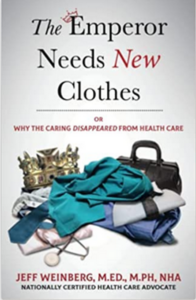60 Aging & Disability Advocacy Organizations Ask Congress to Extend Spousal Impoverishment Protections

The Financial Hardship Faced by Older Americans Needing Long-term Services and Supports
April 23, 2019
Common Sense Rules for Improving Nutrition
April 23, 2019The Spousal Impoverishment protection that was set to expire on March 31st was extended because Congress never got a chance to address the issue. Medicaid’s “spousal impoverishment protections” enable someone who needs a nursing home level of care to qualify for Medicaid and receive long-term services and supports, while allowing their married spouse to retain a modest amount of income and resources to pay for rent, food, and medication. In 2014 Congress temporarily expanded this protection to allow for this care to either be in the home or in a facility. 60 national organizations from the aging and disability advocacy communities sent letters to Congressional leadership urging them to extend financial protections for married couples to avoid potential harms to persons with disabilities and older adults as well as increased administrative burdens on states. Now more than ever it is imperative that we reach out to our legislature to extend these protections. To read more about the importance of HCBS spousal impoverishment protections, click here.
And to check out their fact sheet, click here.


